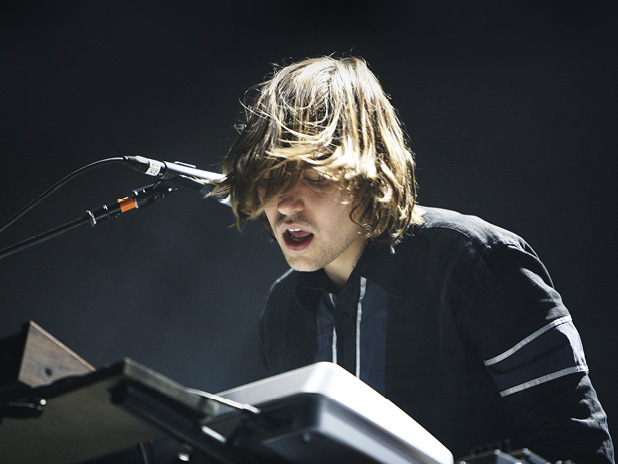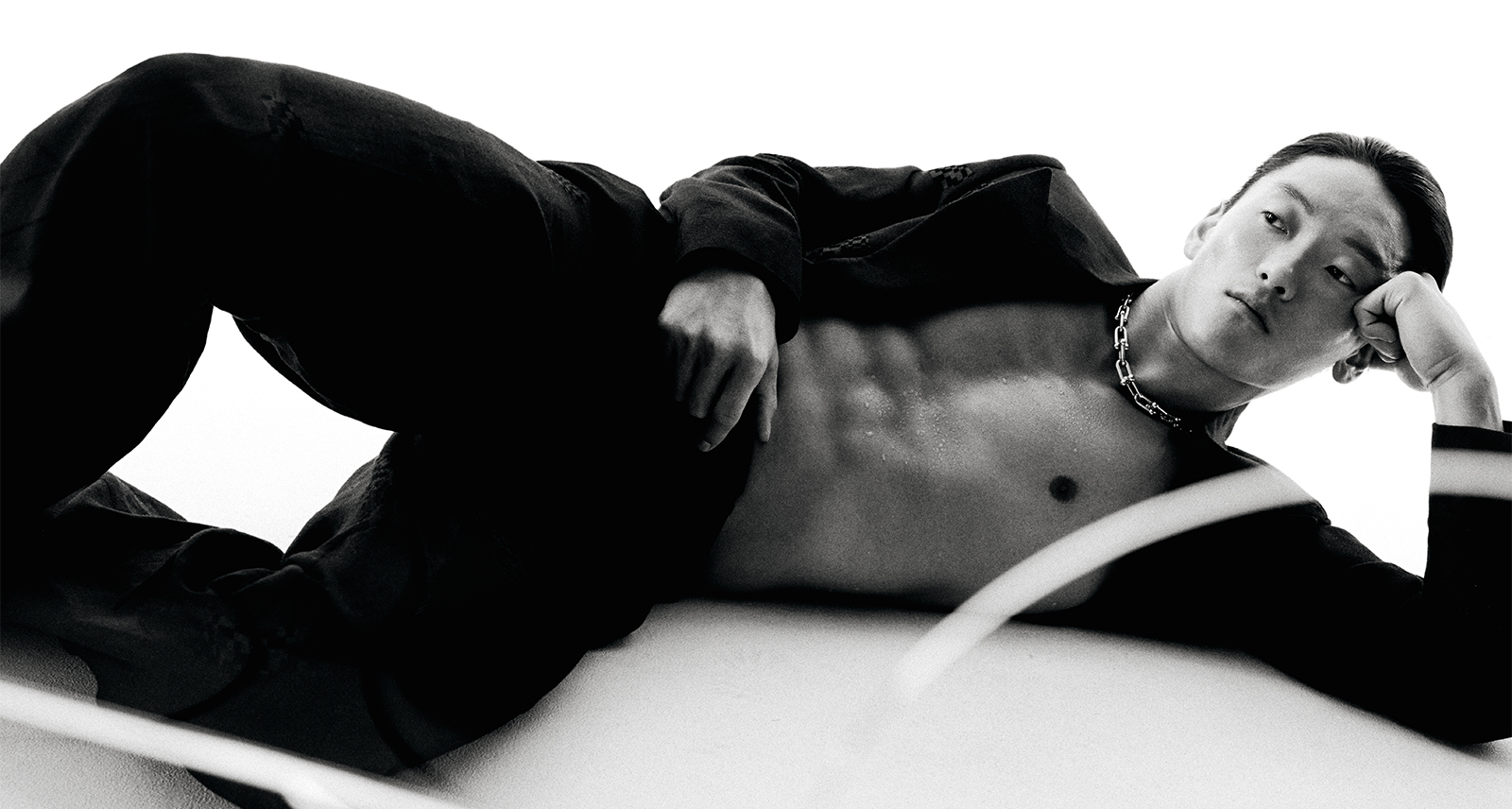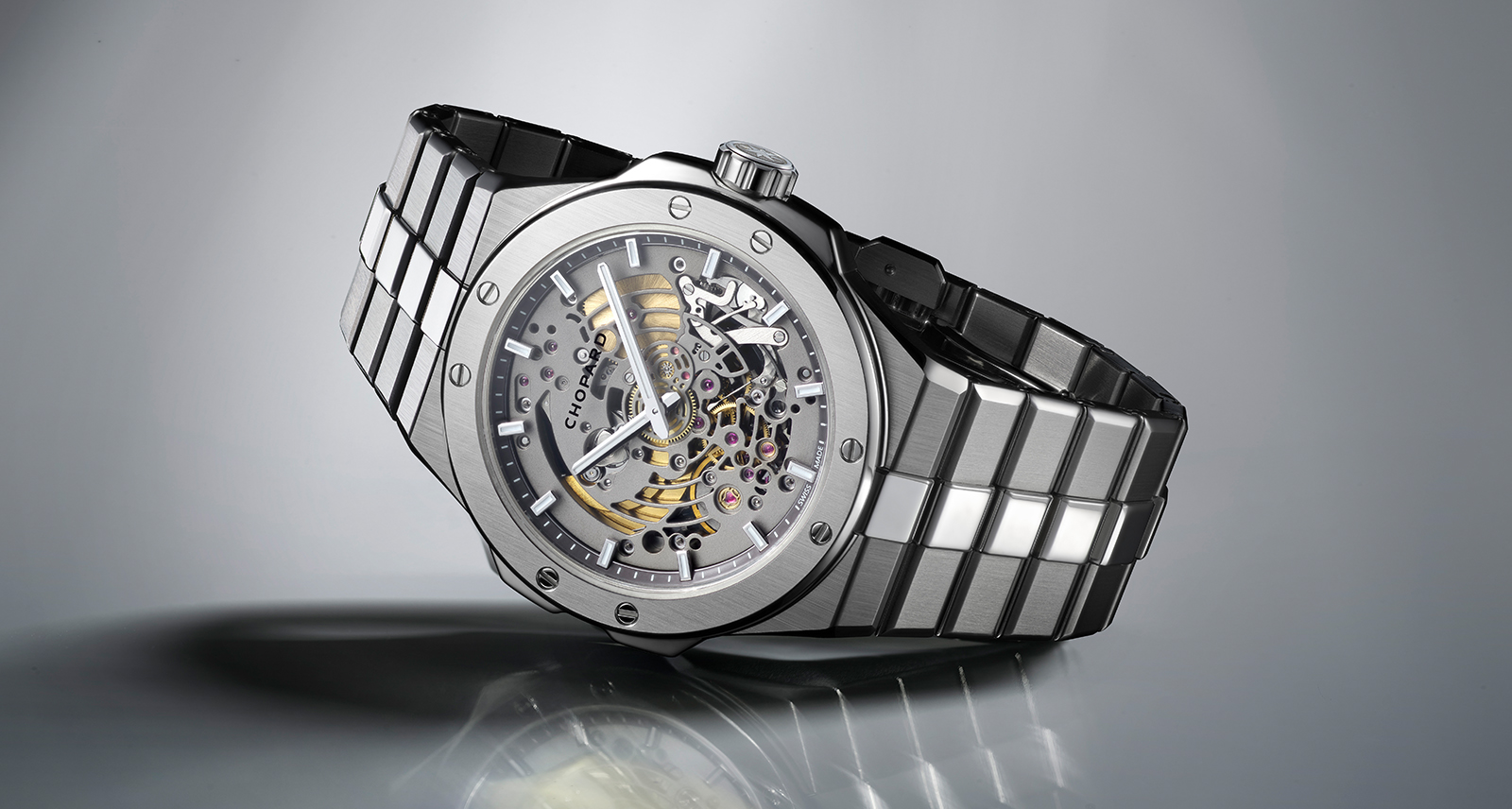Arcade Fire’s Will Butler Goes It Alone
It’s tough being stuck in your big brother’s shadow. Especially when that big brother is the lead singer of the Arcade Fire, the world-renowned, Grammy-winning band you’re the least famous member of. Such is the case for Will Butler, sibling of Win. As the Montreal septet’s utility-player multi-instrumentalist, his musical presence can be tough to trace amid the orchestral rock assault.
But there’s also a certain freedom to being the less-known Butler. Not as burdened by expectations, you get to slip under the radar and strike your own path. Such is the case with Will. During the Fire’s shows, he can often be seen causing a ruckus—darting about the stage, scaling the rafters, brawling with bandmate Richard Reed Parry.
So it’s appropriate that the 32-year-old’s debut solo record, Policy, is the most unhinged thing the Fire or any of its crew have ever released. Far from the usual U2-meets-Bowie stuff, this album—recorded in three weeks at Jimi Hendrix’s Electric Lady Studios—is gloriously impulsive, freewheeling from infectious electro funk (“Something’s Coming”) to inebriated early punk (“Take My Side”) to exultant power pop (“Son of God”). It’s a solid record in its own right—no namedrops needed.
Sharp caught up with Butler to talk about flying solo, being anonymous and beating up birds.
I noticed the first line on Policy, in opener “Take My Side,” is “Where is the fire?” Is that a cheeky reference to your day job?
I wish [laughs]. I wish I was so clever, but, sadly, I’m not. It functions that way, though. I’m glad it functions that way. It was subliminal.
In that same song, you sing, “If I could fly / you know I’d beat the shit out of some birds.” Why?
Well, what have they done for me lately? Seriously.
Maybe you can tell me what made you decide to write this record.
About half of it’s been percolating for, who knows, four to five years. Some of the songs were old riffs or lyrics here and there, a set of chords that were just in my brain. I always imagined I’d put out a record at some point on my own. For a long time I thought I’d do that. It was post Oscar nomination [for the Her soundtrack] that I realized I should probably seize the moment. I was nominated for the work that the whole band [Arcade Fire] did. I definitely shepherded it through the end, as did Owen Pallet, but it was very much the whole band’s work that I was getting credit for so I was like, ‘Oh, if my name is out there I feel like I should be doing something that’s entirely Will Butler.’
Were any of these songs ideas you brought to Arcade Fire to be Arcade Fire songs?
No. I mean, none of the lyrics. I definitely thought some of the music or riffs would have made it in there, or that some of the motifs would’ve wormed their way into one of the Arcade Fire songs Not anymore. Or maybe they still will.
Did it feel liberating to break away from the band and start your own baby?
Very much so. I mean, in the Arcade Fire, there are so many, six or seven voices at one time, so it’s very liberating to hear something on your own.
I noticed the record has a more spontaneous, jagged punk sound than Arcade Fire. Did you intentionally try to make this as distinct as possible from your other band?
I mean, it was intentionally simple, which Arcade Fire is by nature not, because there are always so many voices there. Which is great. Simple is not better or more complex, but it was definitely intentionally simple.
I read in the press release that there’s a Ghostface Killah influence on the record. Where can we hear that?
I mean, I think the line ‘If I could fly / I’d beat the shit out of birds’ is something that Ghostface might say. He might also say 25 funnier and weirder things in the course of a verse, but I feel like that blend of obscurity and violence and character was a little Wu-Tang influenced.
I can see that. Makes sense.
And the survey says, ‘You’re dead.’ Fatal Flying Guillotine chops off your fucking head.
Some people would say this record allows you to escape the shadow of your older brother. Does it feel that way at all for you?
Uh, not yet. But we’ll see what happens.
Well, you’re clearly not as visible as other members of the Arcade Fire. Is that a good thing or a bad thing?
It’s nice to have the perks of fame and a good income and travel around the world but not have any petty annoyances caused by those perks. Because there are a lot of petty annoyances to being famous, like even when people are like, ‘Oh, I really love your music!’ It’s lovely, but if it happens a lot it can be a taxing. I’ve have never had to face that and I perhaps will never have to. I get enough lovely people coming to me that it’s life-affirming, but not interfering.
I read an interview from four years ago where you said, ‘None of us want to be famous.’ Now that Arcade Fire has been on all these arena tours and won a Grammy, how’s that going for you?
We’re definitely more famous than we used to be, but I would still say none of us want to be famous. We definitely are more famous now and there are more upsides than downsides, don’t get me wrong, but we still try to manage it in such a way that we’re not exclusively trading on our image. The thing people care about the most is the music. I mean, I didn’t know what The Clash looked like until I was like 25. So, I’m hoping that’s our legacy—that no one knows what we look like until they’re 25. But, I mean The Beatles are famous. Everyone knows what The Beatles look like and that doesn’t make their music any worse.
Speaking of which, you’ve mentioned there’s a John Lennon influence on this record. Where can we hear that?
The few sonic references that I gave to the sound engineer and the mixer were The Breeders’ albums and John Lennon’s solo albums, so you can hear just when it’s piano, drums, and bass, and you put the mics up like John Lennon’s and hear the influence there. You can also hear the simplicity in his early solo stuff—it’s so direct and so, the guitar, bass and drums are warm but very direct and a lot of one concept and very powerful concepts just lasered into you. There’s definitely a goal on certain tracks.
Is it liberating writing a record without having other band members there to edit your work?
This go around it was very liberating, I would say. ‘Invigorating’ is the term I would use. You have an idea and you see it through to its conclusion and then you sleep on it and then you’re like, ‘Oh, that sucks,’ whereas it’s different in collaborations. Arcade Fire is such a wonderful group to collaborate with, but it is nice to sleep on stuff and figure it out for yourself. You just learn a lot about your music that way, by just focusing on it. I’m sure if I worked that way for a long time it would get real old real fast.
Do you feel naked at all just kind of striking out on your own and baring all your own ideas and lyrics out there?
I’m pretty excited by it. I’ve done so many embarrassing things in public at this point in my life that I’m not really worried about anything.
You can just bare all, comfortably.
Yeah pretty much. I mean once you make a fool of yourself in front of a live 80,000-person audience, you can kind of chill about most things.
You also talk about making ‘pony macaroni’ on another song. Between that and the birds thing, why do you have it out for animals so much?
I think I was kind of trying to channel that classic teenage frustration where you love everything and everything is your enemy. I thought that way through the years 13 through 17.
So those are the golden years you’re trying to channel on this record?
Yeah, the golden and the poisonous years. High highs and low lows.











